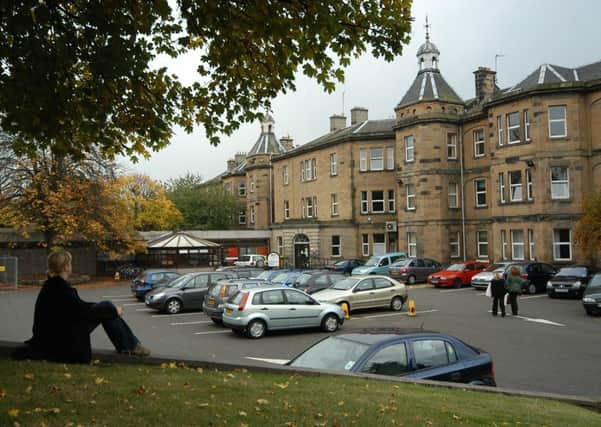60 people '˜stuck' in hospital for months due to care shortage


A report by the Mental Welfare Commission found 58 people with learning difficulties across Scotland – nearly one-third of the 180 patients in the units – had been judged ready for discharge, but were stuck in hospital sometimes for months or even years.
One patient had been awaiting discharge for almost nine years at the time of the commission’s visit.
Advertisement
Hide AdAdvertisement
Hide AdThe problem was worst in Lothian, where 17 patients – 46 per cent of the region’s total – were unable to be discharged because the necessary care packages were not available.
Colin McKay, chief executive of the commission, said: “The main reasons for delays in discharge were lack of funding, lack of accommodation, lack of an appropriate care provider, or a combination of these issues.
“We understand that some people need complex care and support, which can take time to put in place. But a hospital is not designed to be a home, and having people stay for years in a hospital environment – often without all the facilities they should have – is not acceptable.
“We’re calling for the Scottish Government, as a matter of urgency, to work with the new integrated joint boards to end these long delays in discharge, and to ensure all learning disability inpatient units are fit for purpose.”
Advertisement
Hide AdAdvertisement
Hide AdLothian has five units – Camus Tigh in West Lothian; Primrose Lodge in East Lothian; and Dunedin, William Fraser and Islay in Edinburgh.
Lothian Labour MSP Sarah Boyack said: “It is simply unacceptable that patients have had to wait months and even years for a place to become available in the community.
“I am deeply concerned that NHS Lothian has the highest rate in Scotland. We need an urgent review to address the lack of funding, lack of accommodation and the lack of appropriate care providers highlighted by the Mental Welfare Commission.
“The SNP government must listen to the commission’s recommendation and act as quickly as possible to end these unacceptable delays. Patients and their families deserve better.”
Advertisement
Hide AdAdvertisement
Hide AdGeorge Walker, chairman of the Edinburgh Integration Joint Board, said since the report was written, due to the work under way to better integrate services, the number of people delayed in hospital had fallen significantly.
He said: “We certainly recognise the important issues raised by this report. Delayed discharge is one of our top priorities and the board is currently reviewing discharge processes to make sure that they are as efficient and effective as possible.
“We work tirelessly with NHS Lothian, the city council, the Scottish Government and care providers to make sure the right services are in place to support people to either get home or to move to the right specialist provision as quickly and safely as possible.”